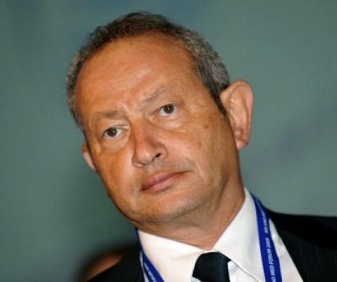
(Photo from Al-Watan Party)
The Al-Watan Party proposed a new initiative to deal with the country’s political and economic crises at a Wednesday press conference ahead of planned mass demonstrations.
The initiative was supported by nine Islamist parties, including the Brotherhood’s Freedom and Justice Party (FJP) and Al-Jamaa Al-Islamiya’s Building and Development Party, and was also approved by 12 Islamist movements, according to state-owned Al-Ahram.
The party detailed nine aspects of its initiative on Wednesday, including a national conference involving all political parties to discuss fundamental problems that had taken root over the past year, especially polarisation surrounding proposed amendments to the judiciary law. Al-Watan also suggested that this conference produce a roadmap for the next three years of Morsi’s presidency.
The Salafi party also called for a “truce” among all political forces in order to avoid “million man marches” until after parliamentary elections. “We are prepared to protect the freedom of expression with our blood …but we believe that the large number of [marches] and demonstrations have brought about paralysis in Egypt’s economic life,” said vice chairman of the party Yousri Hammad, according to state-owned Al-Ahram.
Al-Watan also suggested the formation of a national coalition government, the members of which would be chosen based on merit and regardless of political associations.
Emad Abdel Ghaffour, the founder of the party, also called for the formation of a “neutral” committee tasked with overseeing the process of introducing constitutional amendments, in order to curtail further polarisation surrounding the constitution, which was passed and ratified with Islamist support in December.
Al-Watan additionally proposed the formation of an “economic development board” that would formulate medium and long-term plans to deal with mounting economic pressure.
Parliamentary elections, which opposition parties have said they would boycott, should be supervised by popular committees, said Al-Watan. These committees would be supervised by the Supreme Elections Council and involve a wide range of political parties and civil society organisations.
The initiative also called on the government to focus spending on social justice, in order to help an estimated seven million citizens in dire need of various services.
Abdel Ghaffour listed a number of reasons that Egypt was experiencing difficulties in its transition, including the large number of violent protests that create internal instability. He accused both internal and external elements of capitalising on this instability and said that youth who partook in the revolution were being marginalised. He also highlighted a lack of trust between political parties.

